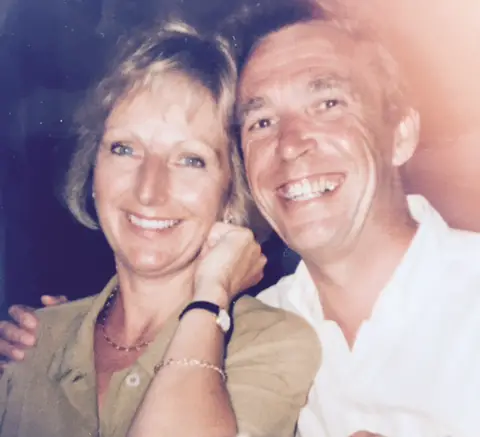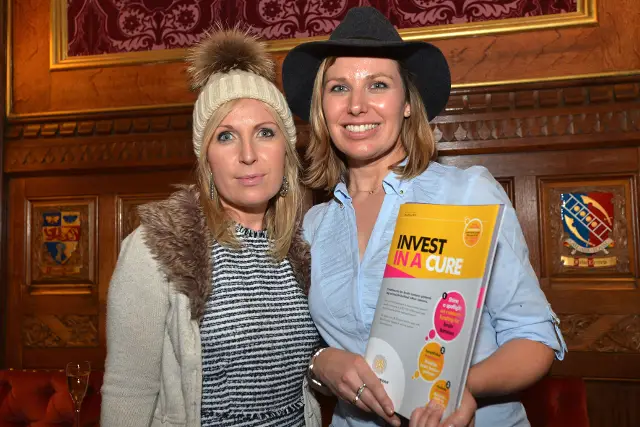Thanks to Susan for this latest news. Ed
Two sisters who lost both parents to brain tumours joined campaigners at Westminster calling for more funding for research into the disease.
Charlotte Venables, 42, and Justina Parry, 39, were among families, carers, scientists, charities and politicians who joined the national charity Brain Tumour Research in urging MPs to reverse the “unacceptable” level of investment into finding a cure and improving treatments for the 16,000 people diagnosed each year.
The women lost parents Mike and Jenny Parry to glioblastoma multiforme (GBM), the most common and aggressive form of brain tumour. They saw their father pass away aged 56 after surgery and treatment only for their mother to be diagnosed with the same type of tumour 15 years later.

Having seen her husband go through gruelling surgery after which the tumour grew back almost immediately, Jenny elected not to have treatment. Instead she spent her final weeks making the most of the time which remained with her daughters. She was 67 when she died two years ago.
Charlotte, a mum-of-two, who lives at Gurnard, Isle of Wight, said:
“Having lost our dad, we could never have imagined that mum’s diagnosis, albeit years later, would be exactly the same. We knew straight away what it entailed.
“Mum was adamant she wasn’t going to go through surgery and suffer like dad had. She just wanted to spend quality time with her friends and family rather than on trips to the hospital when she knew there was no chance of a cure. For us it was probably worse second time around as we knew what lay ahead.”
The Parry’s were among those remembered at a reception held at Speaker’s House, within the Palace of Westminster, by kind permission of patron of Brain Tumour Research the Rt Hon John Bercow MP, Speaker of the House of Commons. The event on Wednesday 9th March was held to acknowledge the contribution made by activists across the UK who shared and signed an online petition calling for more investment. With more than 120,000 people signing, the funding issue will be scheduled for a House of Commons debate.
Charlotte added:
“Brain tumours are indiscriminate and can affect anyone at any age, killing more children and adults under the age of 40 than any other cancer yet just 1% of the national spend on cancer research has been allocated to this devastating disease. This is unacceptable. At the current rate of spend it will take 100 years to find a cure.”
The Chief Executive of Brain Tumour Research, Sue Farrington Smith, who lost her niece to a brain tumour just before her eighth birthday, said:
“Unlike many other cancers, incidences of brain tumours are increasing and it is appalling that, to date, so little has been allocated to research. Many thousands of families continue to be shocked by the lack of treatments available and clinicians continue to deliver a poor prognosis, causing untold distress to patients and their loved ones. We owe it to my niece Alison Phelan, to Jenny and Mike and all of those lost to this dreadful disease to do all we can to bring about change and are asking people to urge their MPs to take part in this very important debate.”
Brain Tumour Research is galvanising people to lobby their MPs to urge them to attend the debate, the exact date of which is yet to be announced, and to campaign for change by signing up online.
The charity funds four dedicated Brain Tumour Research Centres of Excellence and is striving to establish three more. It is challenging the Government and larger cancer charities to increase the national investment in brain tumour research to £30-£35 million each year, the same level of investment other cancers, such as breast and leukaemia, receive.
Read Jenny and Mike’s story.





